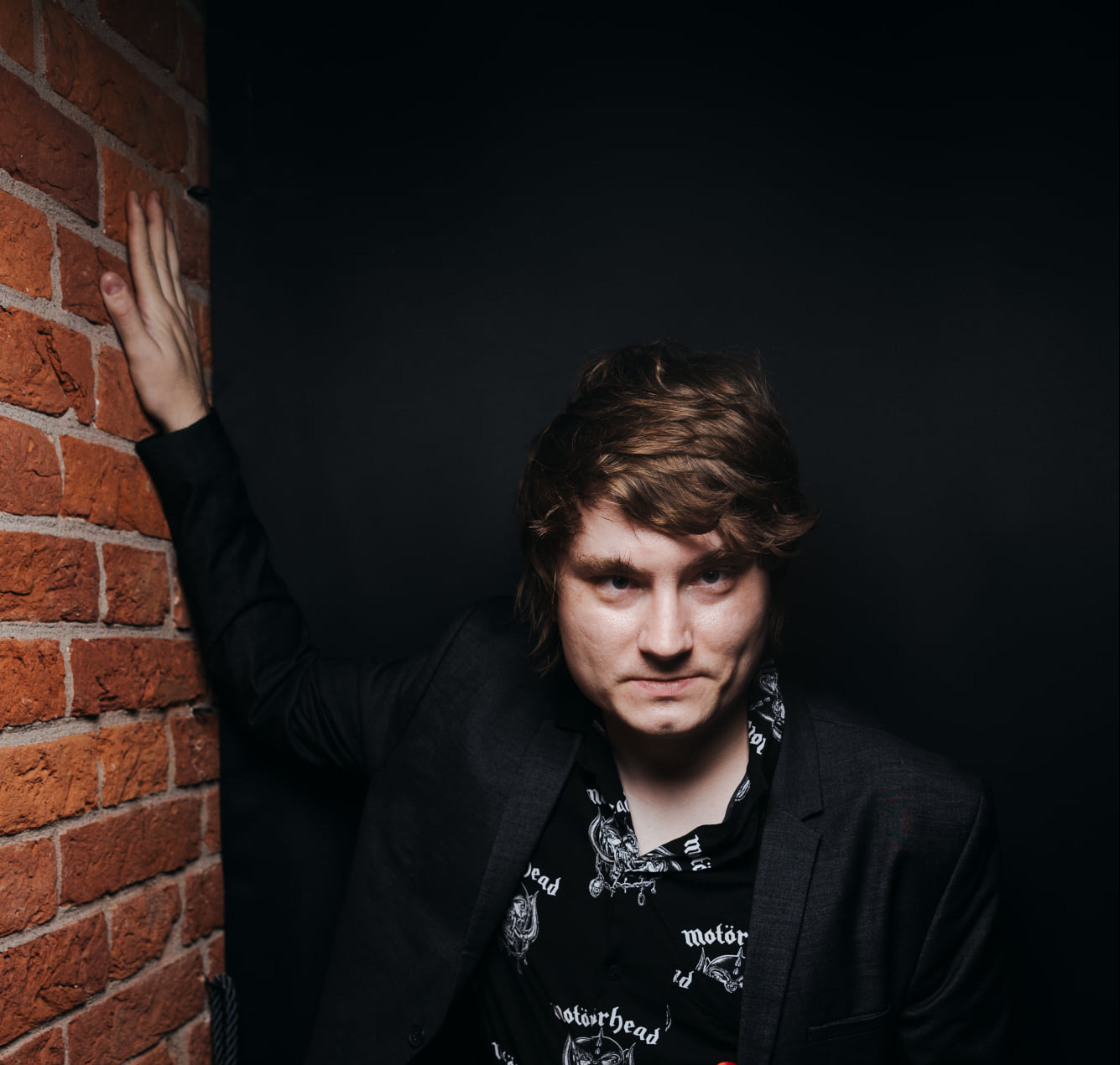Despite the fact that we spend half of the duration of the film in a billiard room, it is impossible not to see “Date in Minsk” as the symphony of the city you love. There is an essential line, when your protagonist says that it is a privilege to live in own’s hometown. Would it be correct to say that Minsk is the third protagonist of the film, after Nikita and Volha?
Yes, Minsk is indeed the third actress in the movie, and a stubborn one at that if I may add. It’s my own fault for not considering it as such in the first place. The thing is, I thought the streets were just a background, a statuary, when it was alive all along: I planned the route my characters take beforehand; it went through a nicely lit courtyard; and afterward, during the actual shoot, that place was completely dark instead. Almost like Minsk, being the diva that she is, refused to reveal herself on camera. It’s okay, I respect that, she kept her image mysterious in the end.
As a film critic, film director and cinephile you have wide interests in cinema. Recently you published an article about your favorite films made in one take. Was it the challenge to make the film in one shot (together with your cinematographer Yulia Shatun, who is also a wonderful director)? Did you make a lot of takes?
No, we only did one take. I think the performative aspect of the film, its central concept, would not allow for a retake–the idea to redo, relive one’s relationship is so magical that it can only be a one-time deal. At the same time, it wasn’t hard to pull it off in one attempt: like I said, we’re talking about a magical enchantment that is inherently cinematic. And of course, Yulia is an experienced witch in her own right. Me as a director didn’t have any expectations or standards to keep up with here. I made this project as a private person for intimate reasons, not as a professional doing work.
Once you began making films, you seemed to be a pioneer of mumblecore in the cinema of Belarus. Now you have an extensive and varied filmography, with documentaries, horrors, essays, romantic movies. “Date in Minsk” feels a massive and very much needed narration of the scale of the novel about the life and feelings of the young people in today’s Belarus. How do you feel about this film – is it a bitter work or a hopeful one? Is it a comedy or a drama?
There’s no great drama without an element of comedy, and vice-versa. Truthful things are funny, as they make us feel uncomfortable; and to me, this movie is a monument of truth even though the whole premise is absurd and phony. All of my movies are comedies. All of my movies are dramas. God, I hope getting through my flick doesn’t feel like reading a whole novel–I was aiming more for a light-on-wordcount 100-page graphic novel, if anything.


